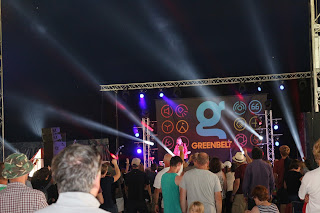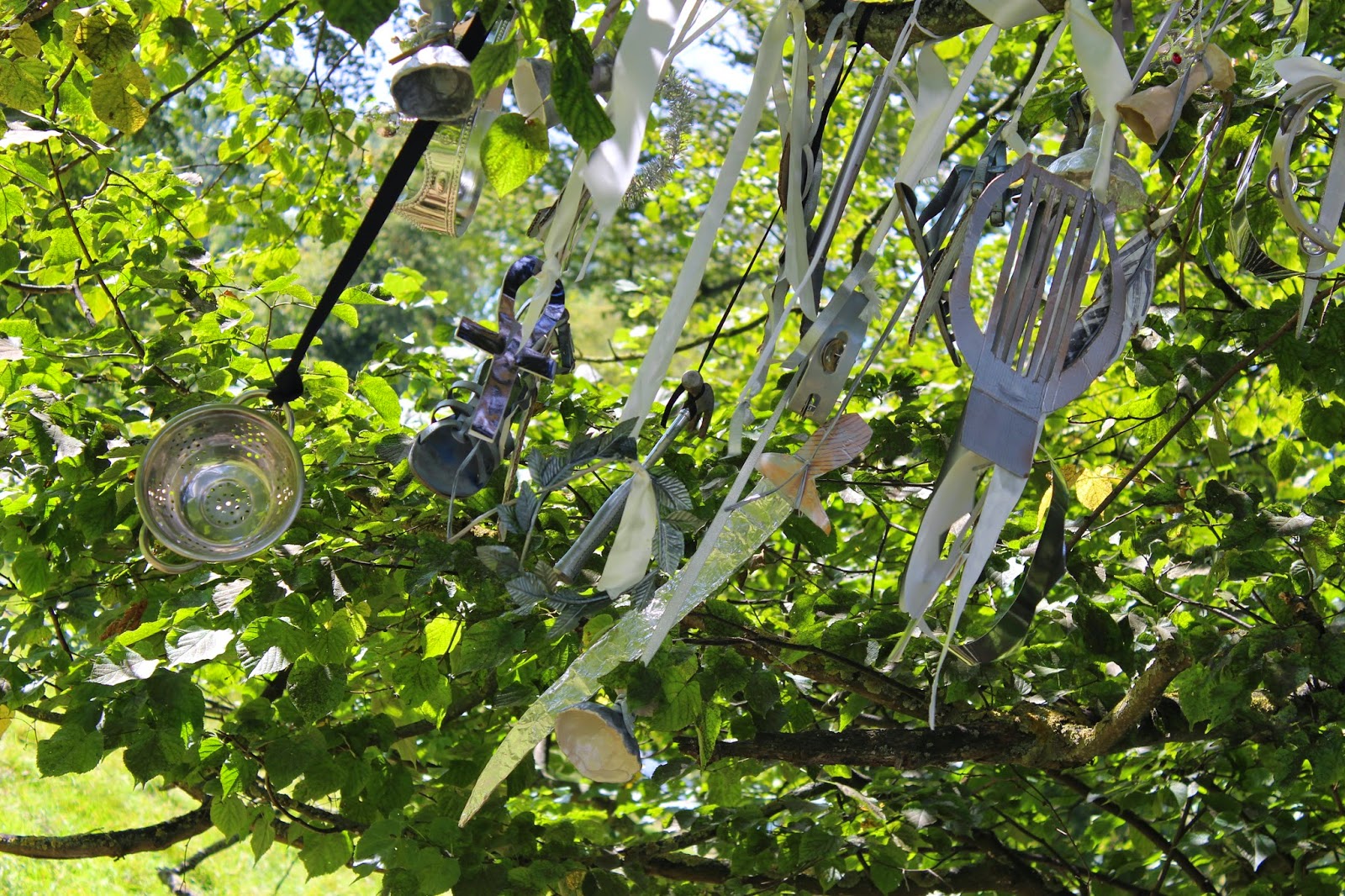I had a great day at
Greenbelt today seeing friends from my cell group and from current and former churches. I caught part of
Nadia Bolz-Weber's talk on
Accidental Saints (especially her
modern Beatitudes),
Harry Baker presents ... (with
Caleb Femi and
Vanessa Kisuule), and
Drew Worthley. I also got to whole sets from
Josie Long, the majestic
Mike Peters, and the wonderful singers and dancers from
Alrowwad Cultural Centre as part of
Cafe Palestinia (which also featured
Peter Banks, co-author of
'The Secret Chord', performing with
Garth Hewitt). Click
here and
here for more information about the issues and campaigns featured in
Cafe Palestrinia.
I first saw
The Alarm in 1983 at the Hammersmith Palais as support to
U2 on the 'War' tour, so seeing Mike Peters at Greenbelt (reprising The Alarm's slightly later
1986 UCLA gig) was both a reminder of the Hammersmith Palais gig and also of how affirming and anthemic is the music they made.
Michael Ramsey Prize winner
John Swinton spoke on 'Gentleness, Care, Spirituality and Vocation'. He told a story about
Jean Vanier calming another person with a look, a touch and shared movement. As with
Kosuke Koyama's
Three Mile an Hour God,
gentleness involves slowing down. He highlighted the second creation account in Genesis as being a story about care for our environment and each other. Receiving care is therefore a key part of what it means to be human. In Western culture, our focus in terms of spirituality is often self-actualisation but spirituality is communal. Inclusion is belonging and people need to miss you when you are not there. We are called to knowing Jesus, rather than know about Jesus, and that is the work of the Spirit in us. Our identity is found in Christ. We are hidden in Christ and remembered by God. In answering the question, 'What does it mean to be a disciple or have a vocation while having dementia?', he told the story of Beatrice and the chaplain at her nursing home. Beatrice began to pray herself when the chaplain started to prayed for her. Beatrice then prayed for 15 minutes and her chaplain commented that she hadn't thought of Beatrice as a prayer warrior until that point. Sometimes our vocation is to do absolutely nothing but to offer communion - silence, attention, space etc - in order to encounter the spirit (nephesh) of the person, spirit to spirit. We need to open our eyes and mind, so we can see the situation differently, remembering that when Jesus sits with the marginalised, the margins shift.
---------------------------------------------------------------------------------------------
The Alarm -
Walk Forever By My Side.






























